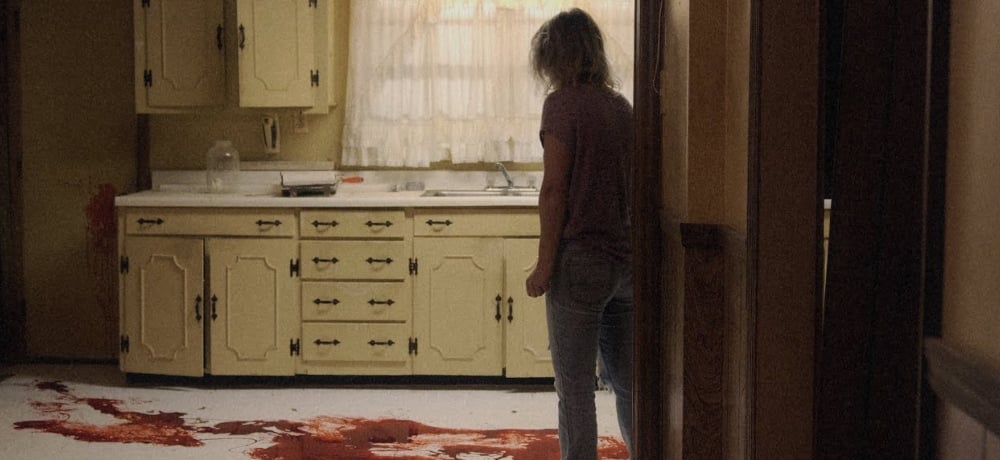


Dementer is a new horror film from writer/director Chad Crawford Kinkle (Jugface) that explores the unstoppable, unpredictable nature of evil.
Katie (Katie Groshong) has recently escaped life inside a strange cult (led by genre fave Larry Fessenden), and is looking to make a fresh start. Living out of her car, and with nowhere to go, she finds a glimpse of hope when she secures a job at a disability resource center. She seems to fit right in—she interacts well with the residents, displays an air of responsibility, and genuinely feels like she might be able to make a positive contribution in this role.
However, Katie’s ties to her past life might not be that easily severed. Within days of starting her new position, she begins experiencing sudden headaches, which lead to flashbacks of the world that she left behind. The flashbacks themselves feel like puzzle pieces to the audience—glimpses at the greater picture of what Katie had endured, but never quite revealing the whole backstory.
Katie tries to shake these moments off, but slowly, she begins to sense an undefined, approaching evil. It is an evil that has its eyes set on a member of the community that she is now working with, a woman with Down syndrome named Stephanie (Stephanie Kinkle). As Katie watches, Stephanie’s health begins to suddenly suffer. Katie knows, deep down, that “The Devils” are coming for Stephanie.
She may have escaped the cult, but she learned a thing or two while she was with them, and she believes that she has the magic necessary to protect the new friends in her life. She begins performing a series of rituals around the group home as a means of stopping what she believes to be happening. Rituals designed to deter the enigmatic evil from approaching, and to protect Stephanie from whatever horrors it has in store. The question is whether Katie’s rituals will be enough.
Dementer is a film built on a very interesting premise, one that looks at where evil comes from and how it spreads, and the way it explores the nature of evil is a fascinating one. Katie’s situation is more precarious than she realizes, as she remains closer to the source of that evil than she knows.
However, the puzzle never fully pieces itself together. As much as we ultimately learn about Katie and her past, there are big gaps of the picture that remain empty and untold. It’s the most frustrating part of an otherwise solid film. Kinkle’s story and direction bring the viewer into a world very much like the one we know, but with an unseen darkness lurking below the surface. His desire to portray the disability community in a light of compassion and inclusion is evident, and the points he ultimately drives in are fascinating to explore.
We just don’t get quite enough detail to fully take us there. Much like the truth at the heart of Katie’s story, full understanding lies just out of reach for us as well. Despite these gaps, it proves itself to be an interesting story, if a slightly frustrating watch.
Movie Score: 3/5